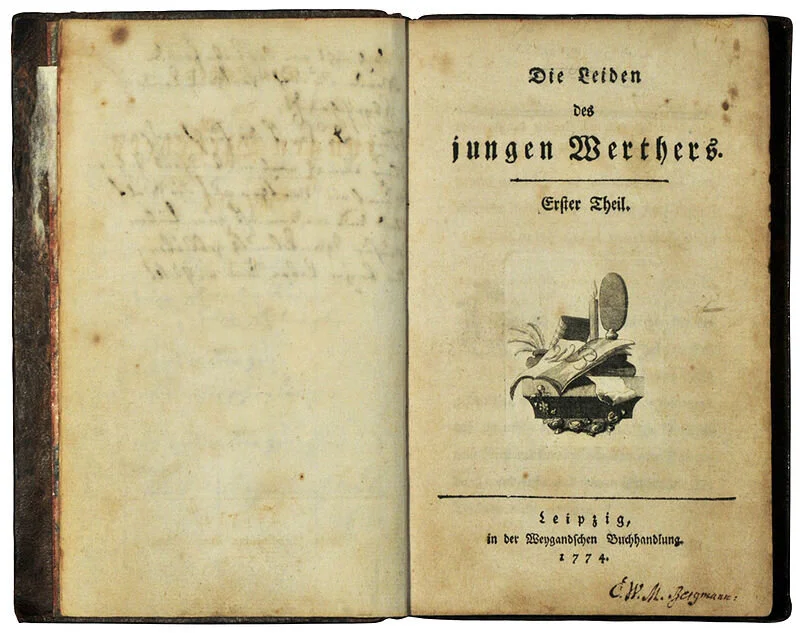What I Learned From The First & Last Sentences Of My 5 Favorite Novels
I was recently overthinking, double-thinking, and re-thinking the first and last sentences of a short story I’m working on. In order to get out of that rut, I decided to take a look at the first and last sentences of my top 5 favorite novels.
Some of these I haven’t read in a few years and some of them I re-read every year, but I thought it would be interesting to record my initial reactions to them, which I’ll share with you now.
Stoner by John Williams
When describing Stoner, I call it a “quiet reckoning.” It is my favorite book of all time and I’ve read it six times over the last six years. I forsee myself revisiting it every year, for a very long time.
“William Stoner entered the University of Missouri as a freshman in the year 1910, at the age of nineteen.”
I’m always surprised by John Williams’ ability to captivate with quiet, straight forward sentences, which mirror the plainness of its titular character.
In this sentence, and the paragraph that follows, Williams’ gives the reader a full-scale overview of Stoner’s life. There are no surprises here. Stoner will live, then he will die, and he will be nothing special. But that’s not true. Because he is special, and you’re reading about this very special, very important (to me, at least), man.
“The fingers loosened, and the book they had held moved slowly and then swiftly across the still body and fell into the silence of the room.”
We begin where his life started and end when his life ended. There is nothing else.
This is the perfect novel and I will be chasing its perfection like a heroin addict chases the next high, for the rest of my life.
East of Eden by John Steinbeck
It has been about four or five years since I read East of Eden (for the second time), but I still remember setting the book down, every few pages, to marvel at its prose. It is a book I have been meaning to read again for a while.
However, I can already see the benefit of doing this exercise, and I’m glad I decided to East of Eden after Stoner, because the similarities between the two are quite startling.
“The Salinas Valley is in Northern California.”
Both are simple, straight-forward sentences that place the novel’s setting. They are not trying to be fancy or pull you in as a lot of first sentences do. They’re unassuming, giving nothing away of the enormity of emotion that will follow.
“His eyes closed and he slept.”
Again, a similarity. They end on a death note, with a character slipping into the great beyond.
I will be reading this again soon.
The Adventures of Kavalier & Clay by Michael Chabon
About four years ago I wanted to start reading more modern writers. I was a fan of Jonathan Franzen and I asked a used book store owner in Vancouver what he’d recommend, based on my enjoyment of Franzen. He recommended I read Kavalier and Clay by Michael Chabon. How right he was.
From there, I read everything Chabon had to offer within a few months. It may have been the fact that it was my first exposure to Chabon, but K&C has remained my favorite of his.
Here is his first sentence:
“In later years, holding forth to an interviewer or to an audience of aging fans at comic book conventions, Sam Clay liked to declare, apropos of his and Joe Kavalier’s greatest creation, that back when he was a boy, sealed and hog-tied inside the airtight vessel known as Brooklyn, New York, he had been haunted by dreams of Harry Houdini.”
This sentence reminds me, somewhat, of Charles Dickens’ David Copperfield (and its not just the reference to Houdini).
It is also a reminder of why I love Chabon’s style so much, and in some ways have mirrored my own style after his. He builds sentences that build upon themselves, like a boulder rolling down a hill, until they come to a declarative stop at the bottom.
“When Rosa and Joe picked it up they saw that Sammy had taken a pen and, bearing down, crossed out the name of the never-more-than-theoretical family that was printed above the address, and in its place written, sealed in a neat black rectangle, knotted by the stout cord of an ampersand, the words KAVALIER & CLAY.”
And beyond sentences that build upon themselves, he is a master of what I call the “aside.” He is able to add small details, like “sealed in a neat black rectangle” or “knotted by the stout cord of an ampersand” that add just enough detail to make the video reel playing in your head sing.
The Bell Jar by Sylvia Plath
I read the The Bell Jar while visiting San Diego last winter and fell in love immediately. There’s a certain sentimentality that is perfectly situated between nauseating and corny in her work.
To me, Sylvia Plath will always be the greatest writer of the Beat Generation (though she’s not classically part of the Beat Generation, but is from from the same era).
“It was a queer, sultry summer, the summer they electrocuted the Rosenbergs, and I didn’t know what I was doing in New York.”
There’s just so much happening in this first sentence. You could break it down into three separate sentences, and I’d love every single one as a first sentence.
“It was a queer, sultry summer.”
“It was the summer they electrocuted the Rosenbergs.”
“I didn’t know what I was doing in New York.”
They all work, but to stack them is a thing of subtle genius.
“The eyes and the faces all turned themselves towards me, and guiding myself by them, as by a magical thread, I stepped into the room.”
I find a lot of Sylvia Plath’s writing is very physical, with eyes and ears and bodies and faces. It comes up within her poetry often, and there’s this tactile sensitivity that I love.
She’s a poet of this world and I appreciate her for it.
The Sorrows of Young Werther by Johann Wolfgang von Goethe
This is a story that I have not read since the summer of 2012, when I (foolishly) gave it to a girl I was dating and never replaced.
It has inspired (at least) once such epistolary imitation from me, which you can read here.
“How happy I am that I am gone!”
I like a story that finds it unnecessary to hold back the punchline. It tells me that it is a story that doesn’t need the power of revelation to push forward its narrative.
He has died, and you know that he has died, but now let’s tell you how. That’s the point. That’s the interesting bit. The death is just the scene setting.
“No priest attended.”
I cannot remember the second half, when the inspector starts to tell you the rest of the story, but from what I recall, neither Charlotte nor Albert attended his funeral, and this sentence is something of a period on that fact.
This is another book that I should pick back up and experience again.
And if you haven’t read about the Werther effect, I highly suggest you do. It’s an incredibly interesting psychological phenomenon that I pull out at parties.
If you want a full, 56-point editing checklist, I’ve put together one here (and used it for my first novel).



